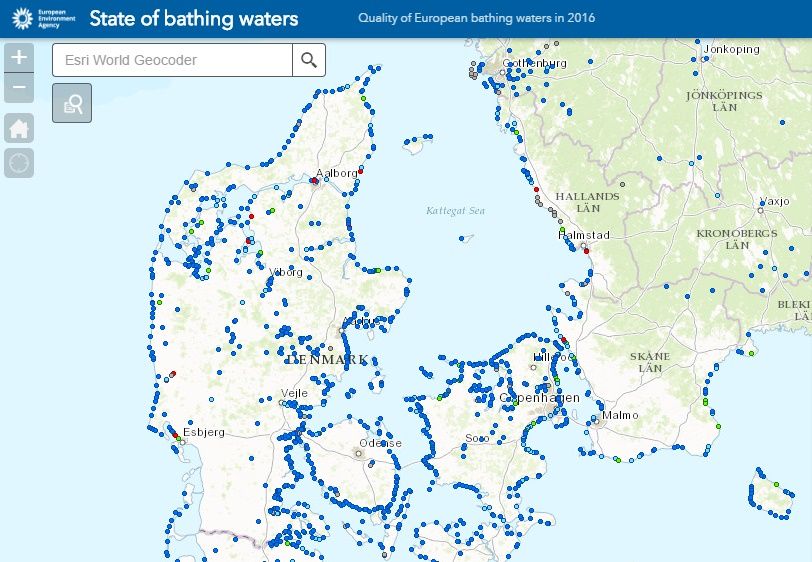With the summer swiftly descending upon us, there’s some more good news for those who enjoy a dip in the sea or a lake to cool off.
According to the annual ‘State of bathing waters’ report compiled by the European Environment Agency (EEA), 85.9 percent of bathing water in Denmark was of an excellent quality in 2016.
“Denmark may not be able to boast that it has the most stable summer weather, but we are a bathing water superpower when it comes to water quality along our coasts,” said Rasmus Moes, a spokesperson for the environmental protection agency.
“You are pretty much guaranteed a fantastic bathing experience – wherever you might be in the country.”
In Denmark’s case, given that it has numerous islands and the 16th longest coastline in the world, that tends to be pretty much everywhere.
READ MORE: Get in the swim of things in Copenhagen Harbour this summer
97 percent approved
Denmark’s bathing areas have only improved in recent years, and in 2016, nine new beaches were given top marks by the EU.
In 2014, 79.2 percent of Denmark’s bathing areas were given top marks, and in 2015, it had risen to 85.7 percent, making Denmark ninth in Europe overall.
In total, almost 97 percent of the bathing areas in Denmark live up to EU’s minimum criteria for bathing water quality. In fact, just eight out of its 1,036 bathing areas were given a poor rating.
Check out the interactive map here (in English) to see how the water quality rates in your area.















